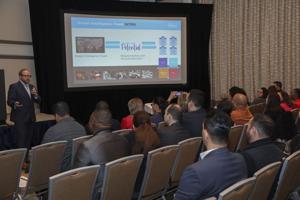New human trafficking prevention initiative launches in January in Iowa

(The Center Square) – Beginning in January, hotel, motel and other lodging owners and operators will be required to have their employees undergo human trafficking prevention training if they want to receive state or local public funding.
The Iowa Department of Public Safety’s Office to Combat Human Trafficking will certify the curriculum for the training and ensure lodging providers meet training requirements. The office announced Friday that it is providing a free online training at StopHTIowa.org. The new website provides tips for spotting human trafficking activity, an interactive map of state-certified lodging providers and a list of qualified training administrators, the news release said. State-certified lodging organizations must display their certification in the lobby or registration area.
The office, which monitors leads and reports from the public and law enforcement, has noticed increased reporting of human trafficking in Iowa. That could either be due to increased trafficking or higher frequency of reporting it, the release said.
“Like most crimes, human trafficking may be hidden from public view, and it can be challenging to determine the incidence and prevalence of the crime,” Division of Intelligence and Fusion Center and Office to Combat Human Trafficking Assistant Director Patrick Waymire told The Center Square in an emailed statement. “This law will hopefully increase awareness and reporting to save victims. We believe this initiative will be a catalyst to strengthen the partnership between lodging providers, law enforcement and their communities to work together to stamp out this horrible crime.”
Iowa legislators appropriated $145,325 to create the training and certification process, develop the website, create marketing material and establish a Human Trafficking Coordinator position to monitor and facilitate the certification process under a law they passed in 2020.
“This law will be a success if law enforcement sees an increase in reporting from the public and our efforts can save even one victim, because one victim is one too many,” Waymire said.
He said the push to inform the public and the lodging industry of human trafficking and how they can work with law enforcement to address it has been local and national. The U.S. Department of Homeland Security operates the Blue Campaign.
“Human trafficking happens in Iowa, and we need Iowans to say something if they see something,” he said.
He said some red flags that could indicate human trafficking, which must be taken in context, are the following:
Working long, unusual hours without freedom to leave.Participation in the commercial sex industry with a pimp/manager or as a child.Under unusual restrictions at work, lack of breaks.High security measures in work or living conditions, eg bars on windows, barbed wire.Verbal or physical abuse by a supervisor.Not provided proper safety equipment.Unusual fearfulness after mention of law enforcement or immigration officials.Paranoia.Poor hygiene and malnourishment.Signs of physical restraint or abuse.Lack of personal possessions.Not in control of own money or bank account.Not allowed to speak for themselves.Inability to state address.Not knowing what city he or she is in.Shares scripted stories.Minimizes abuse.
To report human trafficking, call 911 or the Human Trafficking Hotline (888-373-7888). The Iowa Victim Service Call Center number is 800-770-1650
Disclaimer: This content is distributed by The Center Square

